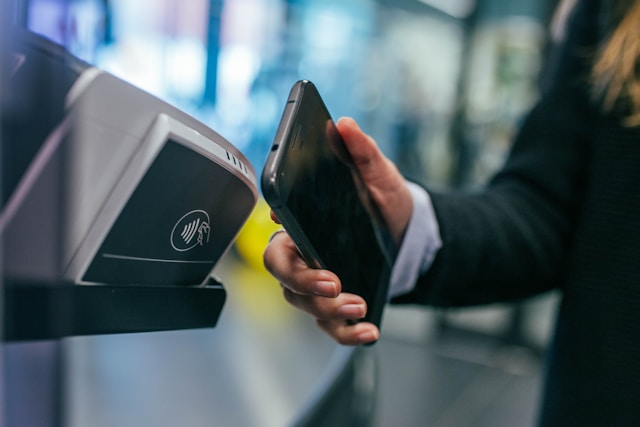Online transactions are widely used in this digital era. It is easy now to pay bills, transfer money, order anything, and make payments—all with a click. Alas, the bane of rising risks for cyber threats and fraud shadows this benefit.
Online entertainment, for one, should not take away from your feeling of safety. At KasynaOnlinePolskie, gambling industry professionals have scrutinized the market to provide you with the expert-vetted kasyno paysafecard selection. Online casinos that made it to their list do their utmost to protect your online transactions. That said, we urge you to take it even further by following the advice shared in this article.
Without further ado, let’s dive right in!
Safe Payment Methods
Prepaid Cards
Compared to conventional plastic, one of the safest ways of spending money today is through prepaid cards. You preload a certain amount on the card. You can only pay up to that amount loaded on the card, so you have no further risk. Here’s why they’re a good option:
Exposure: A prepaid card is not linked to your account. Thus, exposure to a potential compromise provides limited ways for criminals to drain much of your stash.
Controlled Spending: They help individuals plan their budget and control their expenditures since you can never use more than what is loaded on the card.
Anonymity: offers a certain level of anonymity and thus makes it hard for your personal information to be traced.
E-Wallet
This is why e-wallets or digital wallets are so popular: these are more secure and convenient. These allow the user to let the transaction take place securely while storing all the card’s details without explicitly exposing the actual details of the card. Some of the salient advantages of having an e-wallet are:
End-to-End Encryption or Tokenization: The E-wallet employs super-secure encryption and tokenization of a customer’s data, which substitutes sensitive information with a unique identifier at the time of transaction.
Two-Factor Authentication (2FA): Most e-wallets add a layer of protection with two-factor authentication. By doing so after you put in your password, a second form of validation will then be requested to complete, which could be a text code or verifying your identity.
Transaction Alerts: Every transaction sends real-time notices to ensure that you can take immediate necessary actions toward unauthorized activities.
Vital Security Tips
Although this reduces drastically the risk of payment, some security tips can be helpful in further protecting online transactions.
Use Difficult and Unique Passwords
Use long, unique passwords for each account. You will need passwords that should not be easily guessed—for example, do not use your birthdays, the word ‘password,’ or anything too easily guessed. You may consider the use of a password manager as a way to construct unique and complex passwords.
Turn On Two-Factor Authentication
Two-factor authentication adds an extra layer of security. It requires two forms of identification before allowing access to your account. This makes it quite difficult for cyber attackers to gain access in an unwanted manner.
Manage Your Accounts Frequently
Review all your bank and credit card statements regularly and pay close attention to all your account—transaction items you did not authorize. The sooner you identify a problem, the easier it usually is to staunch the fraud and cut your losses.
Watch Out for Phishing Scams
Phishing scams are fraudulent attempts to obtain personal information under the pretence of being a trustworthy company or organization. Watch out for unsolicited email, online chat, or phone calls that request personal or financial information. Don’t answer it, but always verify the sender.
Protect Your Devices
Make sure that any device employed by an individual who is undertaking online transactions is safe—for instance, a computer, smartphone, or similar:
Inclusion of Antivirus Software: The software installed should be regularly updated with a system antivirus program to prevent an individual from falling victim to malware and other internet threats.
Firewall: Enable your firewall and let it block your machine from unwarranted access.
Software Updates: Keep the OS and applications updated with the latest and more secure patches.
Employ Safe Networks
Financially sensitive transactions over public Wi-Fi should be avoided because such a connection is less secure and easily hacked. Delicate information passed over public networks needs a VPN to secure such internet connections.
Check Website Security
Ensure that it is a safe website before you provide any of your credit card information on any website. You will also find “https://” at the beginning of the URL for a secure site.
Employ Trust Seals
Induce trust seals from reputed security organizations, like Norton Secured or McAfee Secure, to certify that the site has been cross-examined to protect users.
Minimize Sharing Personal Information
But be careful what you say with personal information—only give needed minutiae; don’t over-disclose with social networking, as what you view or share could be used to answer security questions or worse, used to crack a person’s password to break into systems.
Conclusion
In conclusion, securing your online payments is not just a necessity but a responsibility. By using prepaid cards and e-wallets, employing strong passwords, enabling two-factor authentication, and staying vigilant against phishing scams, you can greatly reduce the risk of cyber threats and fraud.
Protecting your devices, using safe networks, and ensuring website security are additional layers of defense that will help keep your financial information private. Remember, while technology can provide robust security measures, your proactive efforts and awareness are the ultimate safeguards. Stay informed, stay cautious, and enjoy the convenience of online transactions with peace of mind.
Write and Win: Participate in Creative writing Contest & International Essay Contest and win fabulous prizes.















